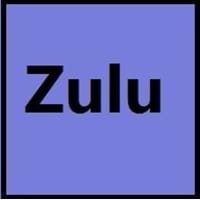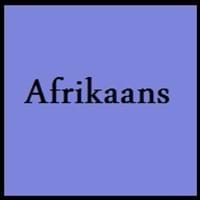Zulu and Afrikaans
- The meaning of word "Zulu" means "Sky"and Zulu was the name of the ancestor who founded the Zulu royal line in about 1670.
- Zulu language has many loanwords borrowed from Afrikaans and English Languages.
- Afrikaans Language is a mixture of English, Dutch, German, French and some South African language like Xhosa.
- Afrikaans Language lacks case and gender distinctions.
All Zulu and Afrikaans Dialects
Most languages have dialects where each dialect differ from other dialect with respect to grammar and vocabulary. Here you will get to know all Zulu and Afrikaans dialects. Various dialects of Zulu and Afrikaans language differ in their pronunciations and words. Dialects of Zulu are spoken in different Zulu Speaking Countries whereas Afrikaans Dialects are spoken in different Afrikaans speaking countries. Also the number of people speaking Zulu vs Afrikaans Dialects varies from few thousands to many millions. Some of the Zulu dialects include: Qwabe, central KwaZulu-Natal Zulu. Afrikaans dialects include: Kaapse Afrikaans , Oranjeriverafrikaans. Also learn about dialects in South American Languages and North American Languages.
Zulu and Afrikaans Speaking population
Zulu and Afrikaans speaking population is one of the factors based on which Zulu and Afrikaans languages can be compared. The total count of Zulu and Afrikaans Speaking population in percentage is also given. The percentage of people speaking Zulu language is 0.16 % whereas the percentage of people speaking Afrikaans language is Not Available. When we compare the speaking population of any two languages we get to know which of two languages is more popular. Find more details about how many people speak Zulu and Afrikaans on Zulu vs Afrikaans where you will get native speakers, speaking population in percentage and native names.
Zulu and Afrikaans Language Codes
Zulu and Afrikaans language codes are used in those applications where using language names are tedious. Zulu and Afrikaans Language Codes include all the international language codes, glottocodes and linguasphere.





